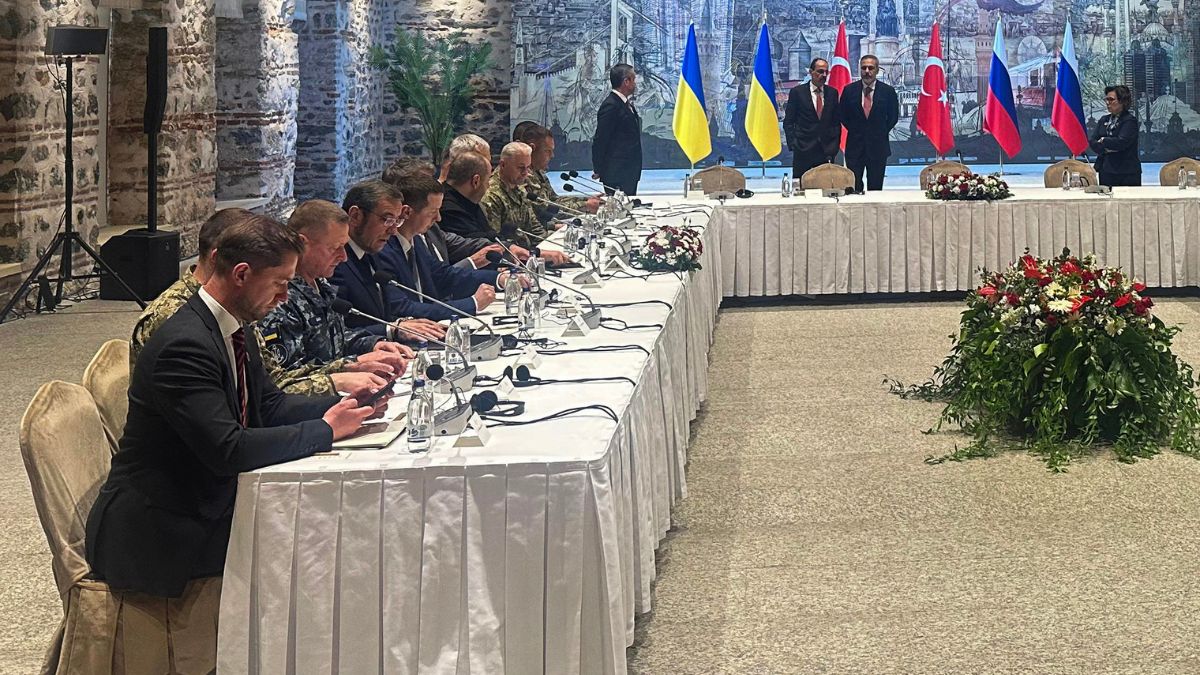Russian officials at peace negotiations in Istanbul have reportedly demanded that Ukraine withdraw its troops from all regions claimed by Moscow before agreeing to any ceasefire, according to a senior Ukrainian official familiar with the discussions.
These conditions, raised during Friday’s high-level talks—the first direct negotiations between Ukraine and Russia in three years—go significantly beyond what was outlined in a draft peace plan proposed by the United States last month following consultations with Moscow.
While the Istanbul meeting ended with an agreement on a prisoner exchange, both sides failed to reach a consensus on a ceasefire. On Friday, a Ukrainian source had described the Russian conditions as “non-starters” but had not provided specific details at the time.
Speaking to Reuters on condition of anonymity, the Ukrainian official disclosed the key Russian demands: Ukrainian withdrawal from Donetsk, Luhansk, Zaporizhzhia and Kherson—four regions partially occupied by Russian forces but still actively contested. The official noted that this demand was absent from the U.S. proposal.
International recognition of Russian sovereignty over five Ukrainian territories: Crimea (annexed in 2014), and the Donetsk, Luhansk, Kherson, and Zaporizhzhia regions. The U.S. draft had only proposed legal recognition of Crimea and de facto acknowledgment of Russian control in the other four regions.
Ukrainian neutrality, including a ban on weapons of mass destruction and a prohibition on foreign troops being stationed in the country—another condition not present in the U.S. peace plan.
Impact Shorts
More ShortsNo reparations from any party involved in the conflict. The American proposal, by contrast, supported compensation to Ukraine.
These demands were conveyed verbally by the Russian negotiators, with no written document provided, the Ukrainian official said.
Kremlin spokesman Dmitry Peskov declined to comment when asked about these reported demands, stating that negotiations should remain confidential.
Kyiv has criticized Russia’s approach, arguing it reflects a lack of genuine interest in peace. Ukraine’s European allies have since called on U.S. President Donald Trump to escalate sanctions against Moscow in response.
Despite the impasse, the head of the Russian delegation expressed satisfaction with the meeting and indicated that Moscow remains open to further talks.
The U.S. draft peace plan, formulated in April, followed several rounds of discussions between Russian President Vladimir Putin and Trump’s envoy, Steve Witkoff. In contrast to Moscow’s conditions, Ukraine and its European partners had proposed a ceasefire as a prerequisite for negotiations, with territorial issues deferred to later discussions.
Zelenskyy has expressed hope for a temporary, full ceasefire with Russia beginning Monday, saying he plans to engage in direct negotiations with Russian President Vladimir Putin in Turkey.
Zelenskyy’s statement comes amid mounting international pressure, particularly from the United States. Former US President Donald Trump has urged Ukraine to agree to Russia’s recent proposal for face-to-face talks in Turkey scheduled for Thursday.
Istanbul Talks - A Key Step Towards Peace: Erdogan
This week’s talks between Russia and Ukraine in Istanbul was an “extremely important” step towards ending the war, Turkish President Recep Tayyip Erdogan said in remarks published on Saturday.
“Bringing together the delegations of the two countries in Istanbul is extremely important for ending the war.. and the establishment of peace in the region,” he told reporters on the plane back from a European summit in Albania.
His remarks came after the two sides met on Friday for their first direct talks in more than three years, in a meeting hosted by Turkey.
Although the discussion, which lasted just over 90 minutes, did not result in a truce, the parties did agree on a large-scale prisoner exchange and discussed a potential meeting between Ukraine’s Volodymyr Zelensky and Russia’s Vladimir Putin.
With inputs from agencies


)

)
)
)
)
)
)
)
)



